November 17, 2021
![]() 12 mins Read
12 mins Read
Well, look, at the moment we’re in a pretty bad position. We are probably standing alongside Russia and Saudi Arabia at the very back of the pack in terms of addressing climate change. So, that’s not very good. The sort of global targets that we’ve set ourselves are almost meaningless. This is from a government perspective, of course, federal government. The state governments are doing much better. The ACT is really the leader of the pack. We’ve seen some really great initiatives from NSW and Victoria of late in terms of addressing the problem, but we need a united approach, there’s no doubt about that. We need state and federal governments working together, like they do with COVID, otherwise it becomes just impossible to get the change that you need.
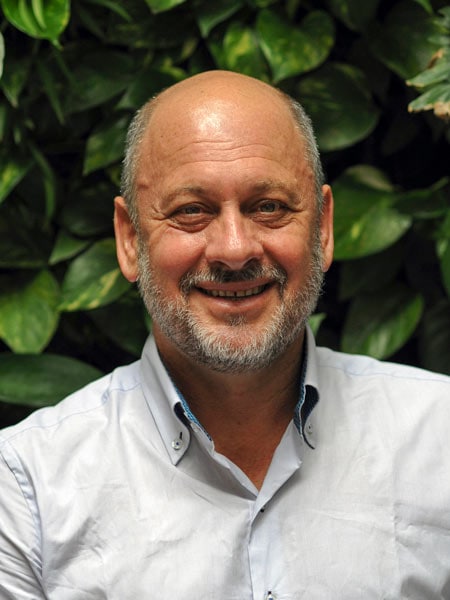
Professor Tim Flannery, acclaimed scientist, explorer, conservationist, 2007 Australian of the Year, and Chief Councillor of The Climate Council.
There’s no doubt that there is an element in the Liberal National Party Coalition that just doesn’t want to see action on climate change, and that’s no secret. People like [Queensland Nationals senator] Matt Canavan and others have said that, and they’re holding the parties to ransom at the moment. But if you look at the general public, most people understand that this is an issue; we’ve lived through the bushfires and the smoke, and we’ve seen the incredible droughts that led to those fires. We’ve seen the damage to the Great Barrier Reef. So, I think it is ideological in that there’s a small element on the conservative side of politics that are just adamantly saying they don’t want action. Malcolm Turnbull said it very clearly, he said they [climate deniers within the Liberal Party] act like terrorists; as soon as they are contradicted they threaten to blow the place up.
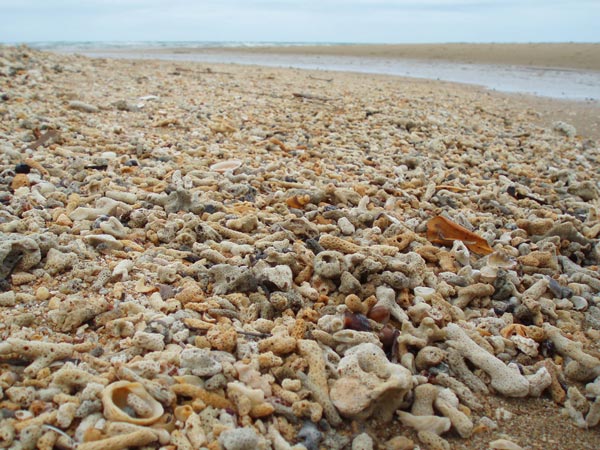
Rising water temperatures caused by climate change continue to cause coral bleaching on the Great Barrier Reef.
The way scientists view this is that there’s a series of tipping points, some of which we are approaching or have probably tipped, others we are a bit further off. When the overall cumulative impact gets to the point where we have triggered a sort of unstoppable slide to a much warmer planet, that’s what you’d call the overall tipping point. I don’t think we are there yet, but we have seen the tipping point reached for the west Antarctic glaciers. It’s approaching for the global ocean circulation, and certainly for the melting of the Arctic ice cap in summer, we’re getting very close to triggering those. I’d say we are close, but not there yet. We still have time actually to avoid that overall tipping point, but you’d have to act very, very quickly on an unprecedented scale to do it.
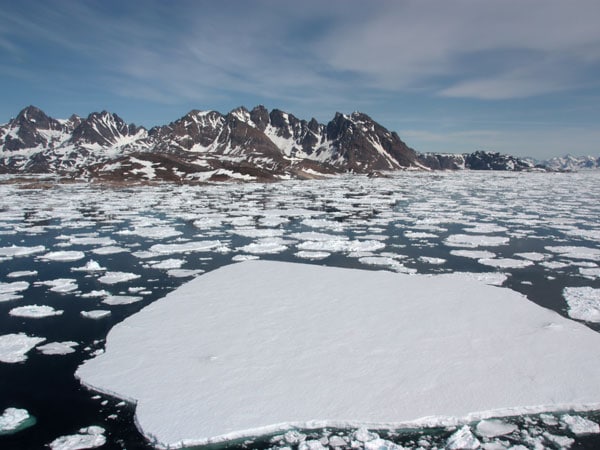
We are approaching tipping point for the global ocean circulation as ice caps continue to melt.
We have to effectively decarbonise the economy by 2035 or thereabouts – there’s a little bit of uncertainty around that. So that means no more petrol cars being sold. It means no more electricity generation using fossil fuels. No more gas, we should be using hydrogen for our industrial processes. That’s where we’ve got to go, so we’re at a very critical period at the moment in terms of doing that. No country, beyond probably Britain, is at that point. There’s some countries that are doing very well in some areas, but there’s no one doing everything yet.
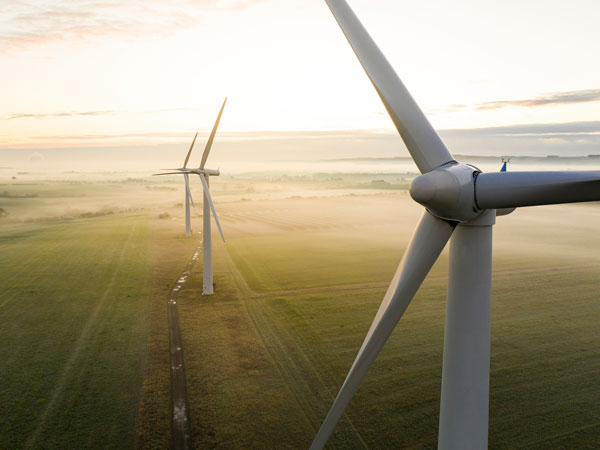
Aerial view of three wind turbines in the English countryside.
We have to act on the scale we acted with COVID, you know. The prime minister said that the virus writes its own rules, well so does the climate system. It doesn’t care what technological capacity we have, it simply reacts to inputs. It dictates the timelines that we have to act to, not any technological development or financial consideration or anything else. And you have to take a holistic approach, like we’ve learned through COVID.
The first thing we learned with COVID is we had to stop the spread. So we had lockdowns, we stopped flights, it had a big impact overall, not just financial but in many ways. Phase two was the emergency room; we had to make sure that we had enough oxygen cylinders, enough ambulances, enough medical staff, enough hospitals, and ICU capacity to deal with the problem. That was another huge effort we undertook. And then third, the search for the vaccine that cost billions and billions of dollars and took many, many months in the face of great uncertainty. Now we look like we’re getting the problem under control; it’ll never go away, but it will be under control.
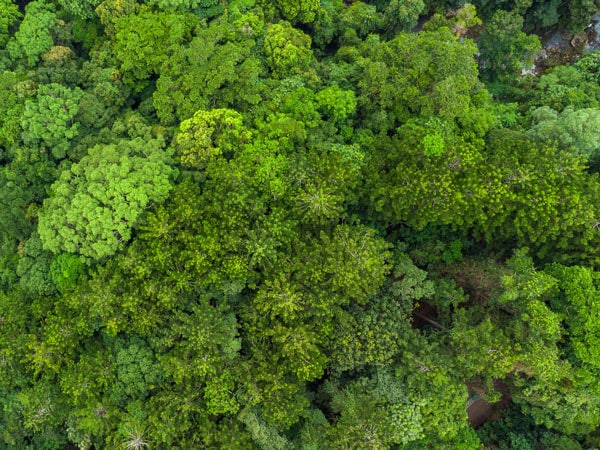
We can avoid climate catastrophe if we act now.
It’s very much like that with the climate. First of all we’ve got to stop the spread. We’ve got to stop burning fossil fuels, and we’ve got to reduce the amount we burn by 10 per cent each year for the next decade if we’re to reach that goal of carbon neutral by 2035. Secondly, we’ve got to have the emergency capacity to deal with the consequences of what we’ve done: we’ve seen the bushfires, we’ve felt the heatwaves, we’re seeing the coastal erosion. We need government to take a holistic approach to really make sure that we’re cost-effectively dealing with all of these problems that are only going to grow with time, to protect our society. That is a massive job and it’s one that the government’s hardly even begun to look at yet. We need a whole-of-government approach for that, from council right up to the federal government. And third, a vaccine, which consists of drawing carbon out of the atmosphere to buy us some time.
There are many ways we can do this, but we’ve barely begun to think about that. We’re going to need [a climate vaccine] about a decade from now, as things start to impact, start to deepen, and we’ve got to start developing that vaccine now. It’s a big investment with uncertain timelines, but we need to do it. This has to be front and centre in order to avoid a catastrophe.
If we went to build interconnectors, to build wind farms and to build solar, we could get rid of coal-fired generators in five years easily. We’ve got all the existing technology, we just need the government plan.
Look, it’s too simplistic in a way. The fossil fuel industry loves it when the focus turns to individuals rather than to them, but clearly there’s things we can all do. We can put solar panels on the roofs of our houses. We can buy either an electric vehicle or a hybrid vehicle or a more fuel-efficient vehicle. But really it’s the issue of government that’s getting in the way at the moment.
I’ve watched as independents have come up through the political system who want to represent their electorate because they feel the current political system is not serving their interests well, and I think that’s a great area for people in a local community to get involved. To develop a vision for where they want their community to be in a decade and vote someone in who’s going to make sure that happens. We need to get much more active in our communities, in our political system and in our families to make sure that we see that change happening.
Yeah, I think so, and the travel industry is one of those things. We love [travel]. It enriches our life hugely, but it does have a big impact on the climate for what is a discretionary thing. If I was you I’d be looking at your messaging. What are the options for flying with offsets? What’s the future looking like for airlines in terms of flying on carbon-neutral fuels? Who’s doing any of this work? With cruising, who has hydrogen-powered cruise ships, who’s developing them? The options are all there, but we’ve got to get serious about doing it now as 10 years from now, it’s going to be too late.
Well, it’s an investment in the future. And if the customer demands it, it will happen. And if government makes it easier, it’ll happen faster. This is a massive opportunity to make money. Look at the investment markets and there’s hardly a bank or investment fund that’s against [climate action]. They’re all divesting from fossil fuels. They’re all demanding more action. So I would view it as an investment and, we need to bring forward that investment if we want to preserve our planet.
Going back to the Franklin [dam protests], that was almost at the end of an era where we were willing to sacrifice entire ecosystems for profit. Today that’s unthinkable. No one in Australia would countenance a Franklin dam scale destruction of the environment. So what’s changed is what’s in our head.
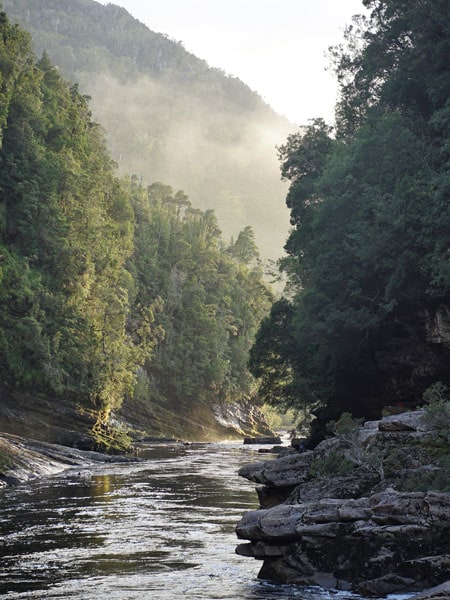
The Franklin River blockade was the most successful environmental campaign in Australian history. (Image: Steve Madgwick)
We now think that is totally unacceptable. We’re getting rapidly to the point where it is unacceptable to continue to endanger our planet through climate change. We’re not there yet. It’s taken probably 20 years to get to that point, but it will come. It will be unthinkable to burn fossil fuels because we’ll see the consequences and see how severe they are within the next decade. I think that’s the big change that’s happening.
Beyond that, I think there’s a wonderful opportunity to heal the world. That’s where we will start living a much better life as we try to heal the damage we’ve done. That’ll be the ‘vaccine’ stage, where we start to regrow the forests and start to grow food incredibly efficiently and start restoring species and ecosystems at a scale that makes a difference. That’s going to be the exciting phase. I hope I live long enough to see that.
Look, I think people don’t really understand how fragile our society is. We see how the COVID pandemic has stressed us and you know, there’s a few empty supermarket shelves, there’s no travel anymore. It’s changed us in some big ways, but that is very small scale compared with the collapse of the climate system. And I think that’s what concerns me the most, the stresses to our civilisation. A civilisation is just a common agreement among all of us to live a particular way and respect each other. And that can be destroyed very easily. So we have to be very aware of that and to move forward with that in mind, I think.
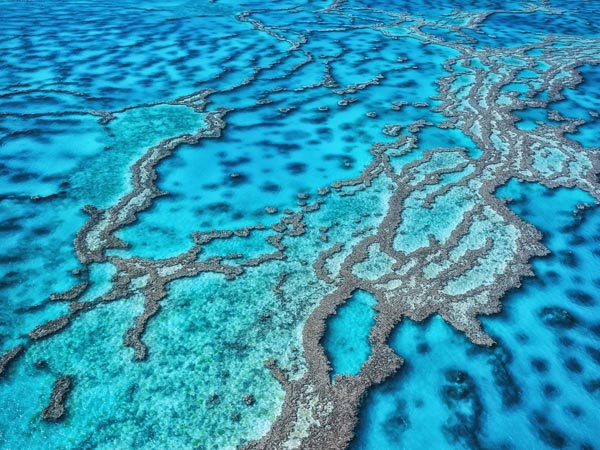
“I’m really hoping that we reach a watershed this year,” says Tim Flannery.
The Glasgow meeting [UN Cop 26 Climate Change Conference] is going to be really important. The fact young people have put their foot down and said, ‘That is enough, we’re not having this anymore’ is really important as well. And that business has done the same sort of thing. I’m really hoping that we reach a watershed this year and that the sort of things that were thinkable in 2020 will be unthinkable in 2022. That we’ll have a different vision for the future.
For the  best travel inspiration delivered straight to your door.
best travel inspiration delivered straight to your door.
We need more like Tim Flannery.